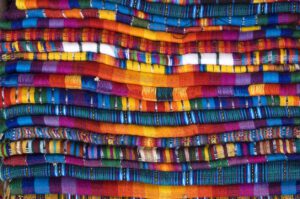Formally launched last year as one of several initiatives to expand diversity in genetics research, 23andMe’s Populations Collaborations Program supports researchers working with understudied populations from locations as wide-ranging as the Democratic Republic of Congo, Angola, and Honduras.
“We’re encouraged by the interest we’ve seen from researchers working with these populations,” said Anjali Shastri, Ph.D., a 23andMe Research Project Manager. “We believe this program can provide critical support for academic researchers working with groups traditionally understudied in genetics research. We hope this ultimately will help improve our understanding of the richness of human genetic diversity and expand the benefits of genetics research to all populations.”
Populations Collaborations
The program — which is soliciting another round of proposals due July 31, 2019 — offers qualified researchers genotyping of samples from understudied populations around the world. 23andMe is particularly interested in populations in Africa, Asia, Latin America, and the Pacific Islands.
The Populations Collaborations Program adds yet another dimension to 23andMe’s efforts to further equity and diversity in genetics research, while ensuring that the work among these groups is just and equitable.
The program includes a grant to support project costs, such as transportation and local staff support. Typically the projects selected under this program involve researchers who are partnered with local institutions with ties to the communities that are being studied to ensure research is conducted in culturally-sensitive ways and benefits serve community needs.
In addition, successful applications typically include provisions for returning to the communities to share the research results when possible. 23andMe gives preference to studies that engage local researchers and community members in the project, and we provide additional support for community investments. Proposals are evaluated both for their scientific merit, as well as how the work may benefit the people being studied. Importantly, the work is overseen by ethics review boards in both the U.S. and the country where the work is done, and researchers must obtain informed consent from participants.
23andMe’s Research Diversity Efforts
![]()
The Populations Collaborations Program is one of more than half a dozen initiatives 23andMe has launched over several years to help improve representation in genetic research. From our Roots Into the Future project launched in 2011, to our recently completed African American Sequencing Project, the goal of these efforts has been to expand the diversity within our database and in genomic research.
It also complements 23andMe’s Global Genetics Project, which is an ongoing effort to recruit individuals to participate in 23andMe research from communities in Africa, Asia, Oceania, and the Americas, who are not currently well represented in genetic research.
This program will not only improve the ancestry and health experiences of our customers, but will also help facilitate novel discoveries within understudied communities. In the case of the African American Sequencing Project, the reference data panel created from that work will be made available to qualified researchers conducting important health studies through an NIH database.
Interested researchers can find out more about this opportunity here.